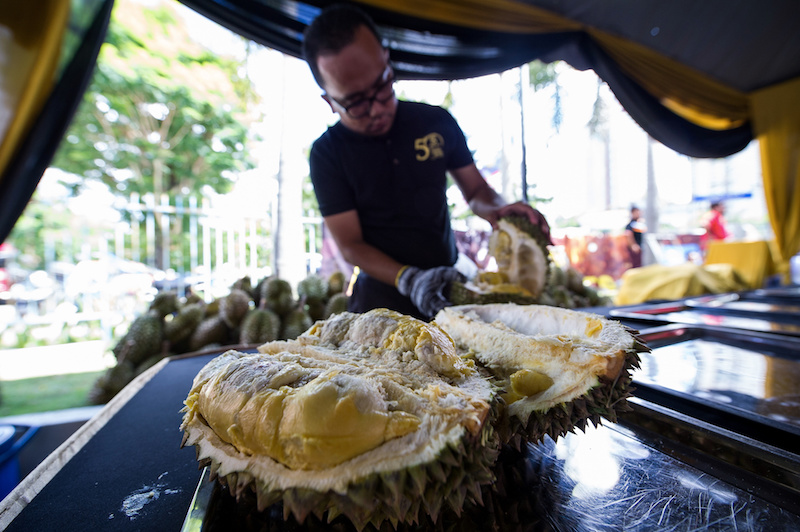KUALA LUMPUR, Jan 31 — The increased demand from China for durians, particularly the extremely popular Musang King variety, may be a boon for many Malaysians who earn up to US$22 per kg (RM90) of the fruit, but it has also sparked land grabs in Gua Musang, Kelantan, victimising the local Orang Asli community.
South China Morning Post (SCMP) reported today that the fruit is extremely lucrative as it can earn farmers nine times more than oil palm in terms of land output per hectare, and is the reason the Temiar tribe are being muscled out of their land, particularly in Gua Musang where the land has potassium-rich soil and an abundance of insect life
The Hong Kong daily cited a local activist, Mustafa Along who has been resisting the move a move to halt land-clearings linked to durian cultivation, and has been slapped with lawsuits for setting up blockades
“This is our land, customary land that belonged to our forefathers since before independence,” the 31-year-old father of three was quoted saying.
“We started a blockade in Gua Musang back in February 2018, to prevent the companies from coming into our land to clear the trees for their durian plants.
“That land is ours. While it’s not written into law, it was verbally agreed upon between the Malaysian government and our forefathers. We’ve been connected to it for thousands of years.”
Malay Mail reported last year that the Temiar community had resisted efforts by a private company attempting to develop Musang King durian and rubber clone projects at the Pos Simpor area, claiming that the irresponsible company has allegedly destroyed 400 hectares of their ancestral land.
The company had tried to persuade the tribe not to block the project, claiming to have received approval from the Kelantan state government and tried to bribe the local Temiar community with Musang King durian trees.
But the clearing of land has resulted in pollution to the local rivers, like the Nenggiri river, rendering its water undrinkable and the fish are gone.
Today’s report in the SCMP suggests the environmental situation has degraded.
“In the past, medicinal plants used to grow in the forest, many of which the Orang Asli would harvest and sell. Now, all the roots have been pulled and the soil is dry. Hundred-year-old trees, which towered like skyscrapers protecting the native wildlife, have been cut down to make way for the durian trees which will be planted in grids, 10 metres apart,” SCMP reported.
But there is a silver lining in a court suit by the new federal government against the PAS-led Kelantan government for failing to protect Orang Asli land in Gua Musang this January 18.
This came after environmentalist Shariffa Sabrina Syed Akil lobbied for the Orang Asli’s right to their land and indiscriminate logging, presenting Prime Minister Tun Dr Mahathir Mohamad with a memorandum, requesting the federal government to intervene.
For Mustafa, it’s a positive step, but too late.
“This is an important development. It shows that the government cares about the welfare and well-being of the Orang Asli. But this should have happened years ago. The damage to our forests is irreversible,” he told SCMP.



















